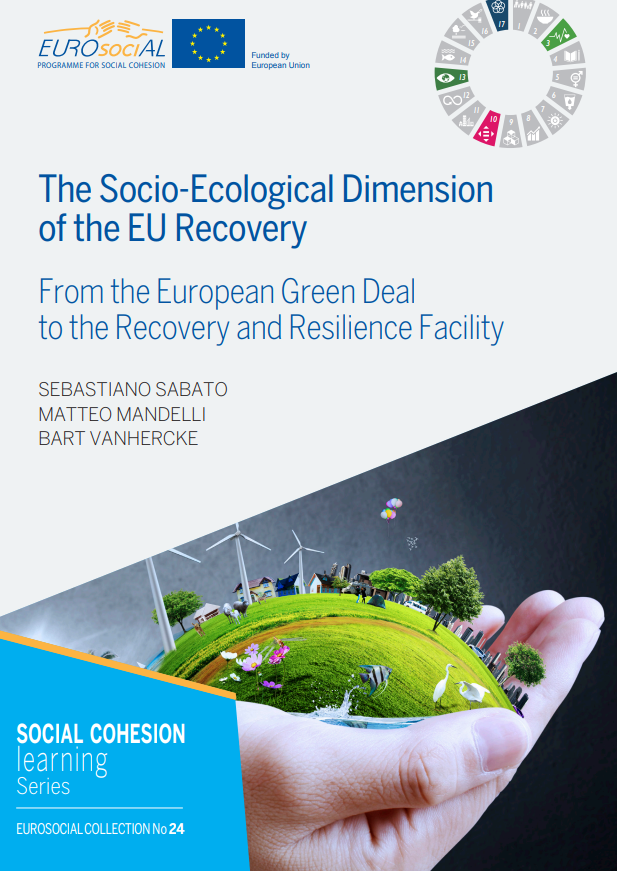The Socio-Ecological Dimension of the EU Recovery From the European Green Deal to the Recovery and Resilience Facility
Author / Authors: Sebastiano Sabato, Matteo Mandelli y Bart VanherckePublication date: 20/09/2021
This report assesses the socio-ecological dimension of the EU’s recovery strategy from the Covid-19 crisis, and identifies elements of continuity and change compared to the pre-pandemic EU growth strategy. Several possible social challenges related to the green transition are acknowledged in the EU’s Recovery and Resilience Facility (RRF). To address these challenges, the EU proclaims a ‘balanced’ approach to the recovery, combining the promotion of green growth with the aim to achieve a socially just transition. For the EU, the principles and rights set out in the European Pillar of Social Rights should represent a sort of social benchmark for the green transition, while social investment policies are presented as key enablers of this transition. The RRF flags the need to implement reforms of national social protection systems and to rely on social and civic dialogue in the elaboration and implementation of national plans; however, these themes have not been explicitly linked to the green transition. The approach proposed in the RRF is strongly rooted in the European Green Deal, which has been confirmed as the EU’s overarching growth strategy, to which the RRF provides new financial and governance instruments
Categories
Type edition: EUROsociAL+ CollectionCoordinator: EUROsociAL+
Language: English
ISBMN/ISSN: 978-84-09-31953-4
Section: Studies
Series: Learning about social cohesion
Number: 24
Type of publication: EUROsociAL+ Collection
Area: Social policies
Keyword: ODS-Resilience Facility (RRF)., The European Green Deal, eco-social-growth, Covid-19, Next Generation
SDG: Good health & well-being, Reduced inequalities, Sustainable cities and communities, Partnerships for the goals


